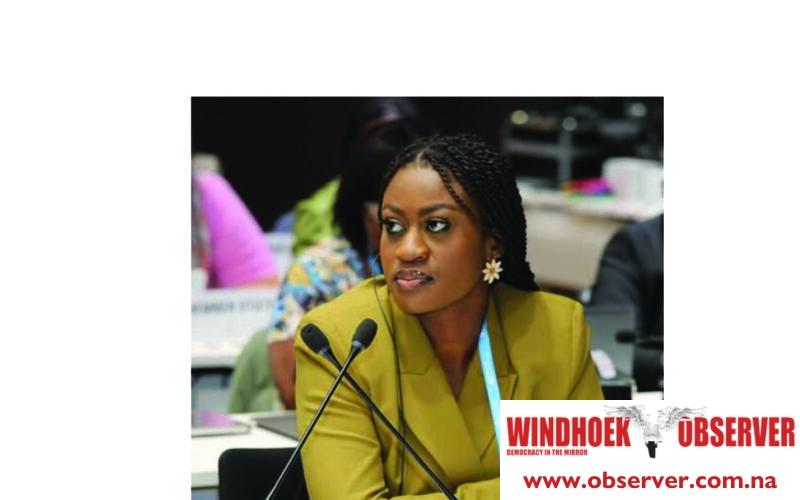Renthia Kaimbi
Health and Social Services Minister Dr Esperance Luvindao’s threat to sue the Windhoek Observer for defamation, both personally and through her brother’s law firm, has drawn sharp criticism from legal and governance experts.
They say the move raises concerns about ethics, conflicts of interest, and possible misuse of office.
Through Dr Weder, Kruger & Haikali Incorporated, Luvindao issued an undated letter of demand to the Windhoek Observer threatening legal action over an article published on 17 October.
The report stated that she had urgently reached out to foreign diplomatic missions for emergency anti-malarial supplies amid low national stock levels.
The article, titled “Luvindao scrambles for malaria medicine from foreign missions… as only a month’s supply is left,”was based on a leaked ministerial letter confirming the appeal during a malaria outbreak that has claimed more than 150 lives in 2025.
Lawyer Norman Tjombe of Tjombe Incorporated, representing the Windhoek Observer, refused to retract the story, calling it “a matter of national importance and public accountability.”
“The content and context of the article has nothing private or personal of or concerning the Minister of Health and Social Services,” Tjombe said.
He argued that it was inappropriate for Luvindao to act in her personal capacity when the issue involved her official duties, saying any lawsuit should be handled by the attorney general’s office, not a private firm.
Tjombe also questioned the minister’s choice of legal representation, as her brother, Tshuka Luvindao, is a director and co-managing partner at Dr Weder, Kruger & Haikali Inc.
“If the threatened lawsuit is pursued in her official capacity, we will seek a High Court review to set aside the decision to hire private lawyers as unlawful and an unnecessary waste of scarce state resources,” Tjombe warned.
Corporate governance expert Johannes Coetzee said the minister’s approach risks eroding public trust.
“If the matter has to do with her ministerial capacity, suing in a personal capacity blurs the line between public duty and private interest. Using a law firm where a close relative is a director creates a clear conflict of interest,” he said.
Coetzee added that such actions reflect a growing pattern of public officials using their positions for personal protection.
“This tendency to conflate political authority with personal privilege weakens accountability and undermines public confidence in governance,” he said.
The Windhoek Observer has stood by its reporting, stating that the story was accurate and based on verified information. The paper said it sought official comment from the Ministry of Health before publication, and the existence of the letter requesting malaria drugs was not denied.
“Our report concerned a matter of urgent national and continental concern; malaria remains the single biggest killer in Africa. It is in the public interest that such issues are reported transparently and truthfully,” the newspaper said.
The paper views the minister’s legal threat as an attempt to intimidate the press and prevent scrutiny of government performance on key health issues.
The dispute has drawn comparisons to legal developments in the region.
A South African court this week ordered former president Jacob Zuma to repay R28 million in state funds used for his private corruption defence, ruling that the expenses were personal and unrelated to his duties.
Legal observers say the case shows that public funds and positions cannot be used for private legal matters, even if the issue stems from official work.
The Windhoek Observer maintains that its report did not defame the minister but exposed the government’s lack of preparedness during a public health emergency.
Its lawyers said holding public officials accountable is a constitutional duty of the press.
“Sending legal threats does not change facts. Public office demands accountability, not intimidation.”
The dispute has now evolved into a broader debate on ethics in public office, conflicts of interest, and the role of the media in holding power to account. The Windhoek Observer says the case could set a precedent on how far public officials can go in using personal legal action to challenge public scrutiny.
“We will not be silenced,” the newspaper said. “When lives are being lost, the truth must be told, no matter who feels uncomfortable.”




